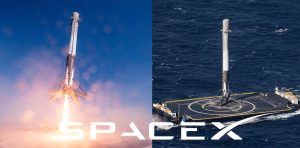Editor’s Summary: SpaceX, a company started by Elon Musk, is making space travel much cheaper by creating rockets that can be reused. These rockets can land back on Earth and be launched again, unlike traditional rockets that are used only once. This innovation has prompted other companies and countries to work on their own reusable rockets, leading to what is called the “SpaceX Effect.” This shift could make space launches cheaper, allowing for more satellites, experiments, and even future colonies on the Moon or Mars. Despite some challenges, SpaceX’s success has inspired the whole space industry to find new and exciting ways to use space.
SpaceX and the Future of Space Launch: An Expanded Summary

Introduction
Space travel has always been exciting, but it’s also been very expensive. SpaceX, a company started by Elon Musk, is trying to change that. They’ve created rockets that can be used more than once, which could make sending things to space much cheaper. This article looks at how SpaceX is changing the way we think about space travel and how it’s affecting other companies and countries that launch rockets.
What SpaceX Did Differently
SpaceX did something that many people thought was impossible. They made rockets that can land back on Earth after launching into space. Most rockets are only used once and then crash into the ocean or burn up in the atmosphere. But SpaceX’s rockets can land on a platform in the ocean or back on land, and then be used again for another launch.
This is a big deal because rockets are very expensive to build. If you can use a rocket many times instead of just once, you can save a lot of money. SpaceX believes this will make space travel much cheaper, maybe even 100 times cheaper than it is now!
How Other Companies Are Responding
SpaceX’s success has made other rocket companies rethink their plans. Here’s how some of them are responding:
- United Launch Alliance (ULA): ULA is a big American rocket company. At first, they didn’t think reusable rockets would save much money. But now, they’re working on a new rocket called Vulcan. Instead of landing the whole rocket, Vulcan will drop its engines down with parachutes and catch them with helicopters. This way, they can reuse the most expensive part of the rocket.
- Arianespace (European company): Arianespace is Europe’s main rocket company. They’re working on a new rocket called Ariane 6 to be cheaper. They’re also looking into ways to reuse parts of their rockets. One idea they have is called Adeline, which would bring back just the engines and computers of the rocket, not the whole thing.
- India: India’s space agency, ISRO, is testing technology for reusable rockets too. They’ve flown a small test vehicle that looks a bit like a space shuttle. Their goal is to make space launches much cheaper, maybe even five times cheaper than they are now.
- China: China is also working on reusable rocket technology. They’re trying different ways to land rockets safely, like using parachutes and airbags. They’re also developing spaceplanes, which are like small airplanes that can go to space and back.
Why This Matters
Cheaper space launches could change a lot of things:
- We could send up more satellites, which could mean better internet and phone service around the world.
- It could be easier to do experiments in space or explore other planets.
- New businesses could start up that use space in ways we haven’t thought of yet.
- It might even help us someday build colonies on the Moon or Mars!
The “SpaceX Effect”
When SpaceX first talked about reusable rockets, many people in the space industry didn’t think it would work. Now, almost every major rocket company is trying to do something similar. This is called the “SpaceX Effect.”
SpaceX has made the whole space industry more excited and innovative. Even if other companies aren’t copying SpaceX exactly, they’re all trying to find new ways to make space travel cheaper and easier. This competition could lead to many new inventions and ways to use space.
Challenges and Future Plans
Even though reusable rockets are exciting, there are still challenges:
- It’s hard to make sure the rockets work perfectly every time after being used.
- Some customers might prefer new rockets over used ones.
- It takes a lot of fuel to land a rocket, which means it can’t carry as much to space.
SpaceX isn’t stopping with just reusable rockets. They’re working on even bigger rockets to send people to Mars. Other companies are also making big plans, like building space stations or mining asteroids.
Conclusion
SpaceX has changed how people think about sending things to space. Even if we don’t know yet if their business will make money, they’ve already made a big difference. They’ve pushed other companies and countries to try new things and think differently about space travel.
This competition and innovation could lead to exciting new possibilities in the future. We might see space tourism become common, or watch as humans set up bases on other planets. The space industry is becoming more exciting than ever, and it all started with the idea of a rocket that could fly more than once.
Work Cited: